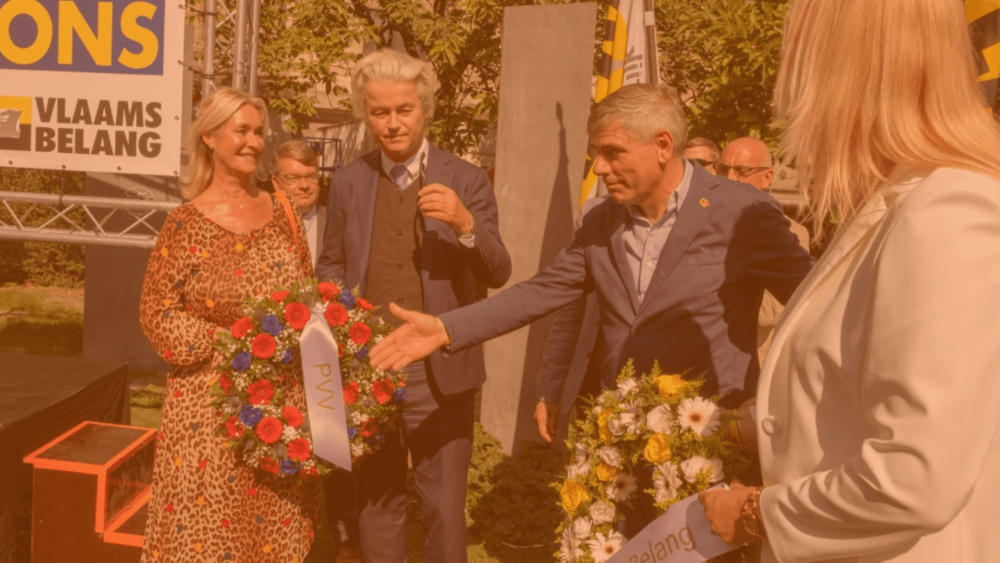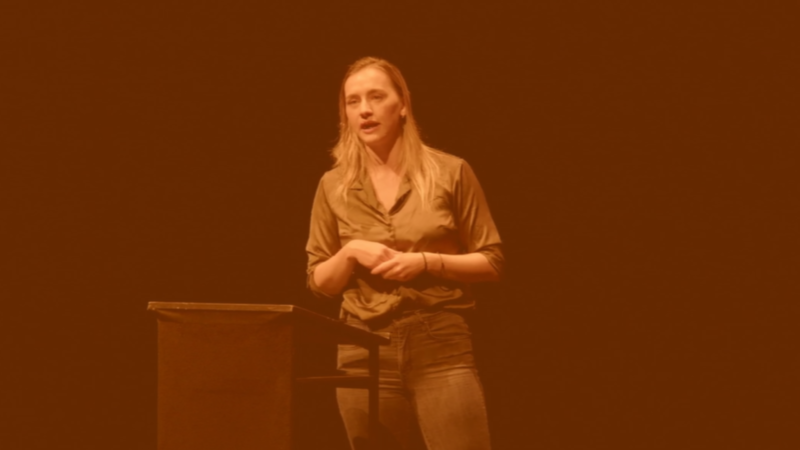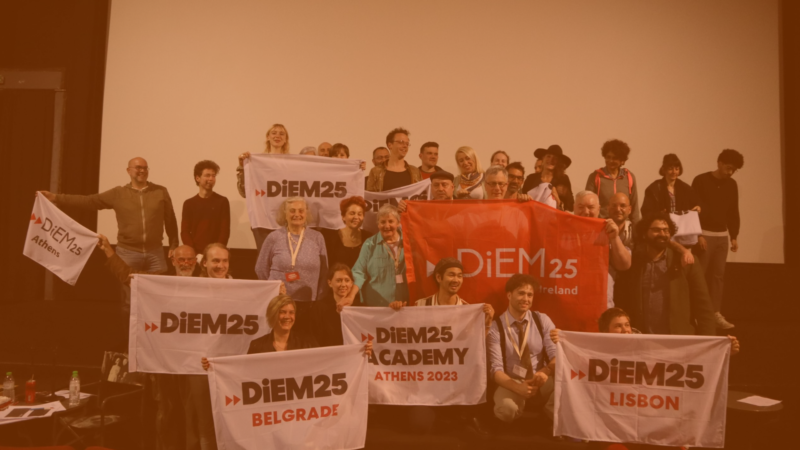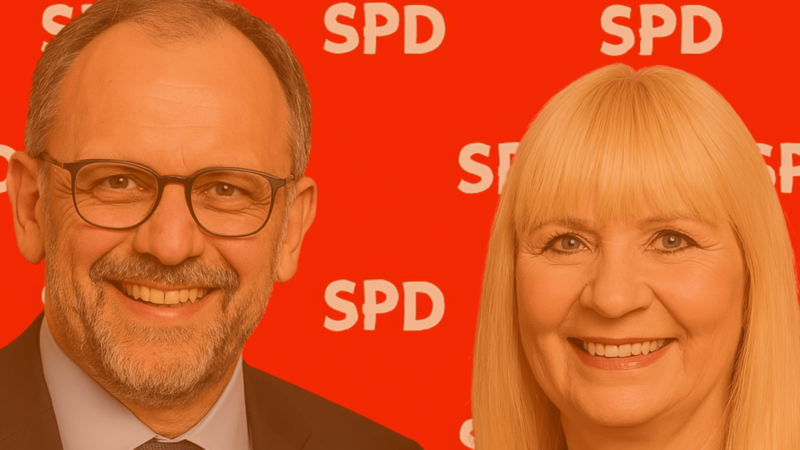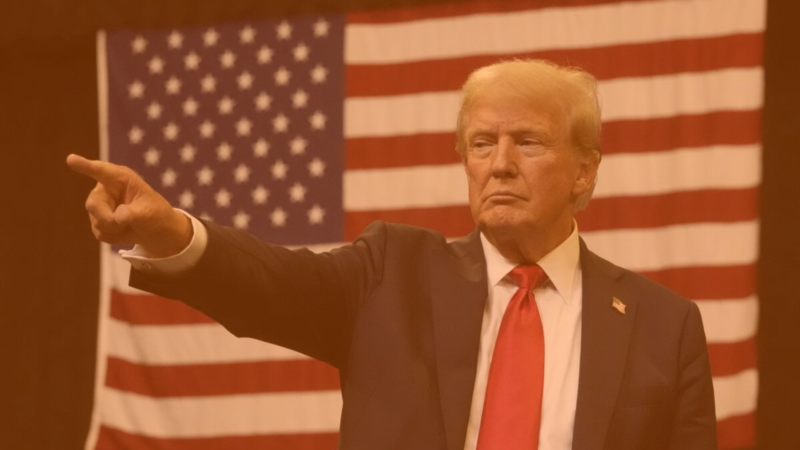The political practice of sidelining the far-right parties is pushing us towards yet another self-inflicted crisis. As it’s becoming increasingly clear that the political centre is only interested in maintaining the status quo, a growing number of voters turn to the easy-sounding populist ‘solutions’ in their search for meaningful politics. The result is a growing distrust in politics and democracy – and actual human casualties.
Cordon Sanitaire is a term coined in Belgium to describe the political agreement to isolate the far-right Vlaams Blok (since 2004 Vlaams Belang) after its electoral success in the early 1990s. More precisely the other parties agreed that “no political agreements or arrangements would be made with a party that disregards human rights and the tenets of democracy.” While differences of opinions are part of democracy, the equal value of each of us as human-beings cannot be questioned.
Similar political manoeuvring has been practiced in several European countries – as well as elsewhere – where the populist/extreme/far right has gained popularity. Most recently, we’ve seen this in the way the political left united in France to form the Popular Front – also endorsed by DiEM25 – and how the pro-European groups in the European Parliament came together to back Ursula Von Der Leyen’s second term as the president of the European Commission.
Genocide-cheerleader Ursula von der Leyen has been re-appointed President of the European Commission
Join over 76,000 people who have already signed our petition demanding her resignation. We won’t shut up until she’s gone.
Add your voice now: https://t.co/V97OLNbq4Y https://t.co/GTNdkfMmRy
— DiEM25 (@DiEM_25) July 18, 2024
The Dutch experiment in democracy
Here in the Netherlands we have some experiences of cordon sanitaire as well. Pim Fortuyn was the first right-wing populist politician of note in the Netherlands in the early 2000s and the present extreme and far right movements are in many ways his legacy. After being cordoned by the right-wing populist party Livable Netherlands due to his strong anti-islam views, he founded his own party to run in the 2002 Parliamentary elections. Fortuyn was assassinated during the campaign, but his party was successful and even made it to the government. However, they didn’t last long due to internal scuffles and the coalition partners withdrew their support claiming the party an unstable partner.
Many of the current Dutch right-wing politicians got into politics inspired by Pim Fortuyn. The most prominent of them is undoubtedly Geert Wilders. He had started in politics already in the 1990s along with the then future Prime Minister Mark Rutte in the VVD party. Wilders picked up on Fortuyn’s anti-islam rhetoric and general xenophoby and formed his own one-man party PVV around the same ideas.
Thanks to Wilders’ public commentary – that has even gotten him into legal trouble – it hasn’t been too hard to keep him at distance from positions of power; until the last Parliamentary election. In November last year Wilders scored a landslide victory of a magnitude that made it impossible to sideline him from the coalition talks. These talks took a long time and eventually some degree of cordon sanitaire was still in play after all. The heads of all the negotiating parties agreed to stay in Parliament and Wilders had to give up his chance to become a Prime Minister.
The resulting ‘extra-parliamentary’ government got installed just before the summer break. Some signs of what is to be expected can perhaps already be deduced from a situation that recently came up due to an X post of Geert Wilders in which he claimed that “the one and only true Palestinian State is Jordan.” Minister Caspar Veldkamp of Foreign Affairs had to call his Jordanian colleague to ensure that Wilders’ view is not the official position of the Dutch government regarding the situation in Palestine. They support the pipedream ‘solution’ of two states. Read here more about why two states is not – nor was it ever – a viable solution.
The French turn to the left
Ahead of the recent Parliamentary elections, the rather fractured left of French politics managed to organise themselves into the Popular Front to prevent Marie Le Pen’s National Rally from getting to power. While the electoral victory of the Popular Front was received with many cheers and sighs of relief, soon after the election results were announced Yanis Varoufakis warned that Emmanuel Macron is bound to lean further to the right to maintain his position. Perhaps not surprisingly, Yanis Varoufakis’ warning soon turned concrete as Macron was able to secure the selection of his candidate for Prime Minister amid disarray amongst the left alliance – and support from the right.
This move reveals the true nature of the cordon sanitaire practice. It has little to do with refraining from making agreements “with a party that disregards human rights and the tenets of democracy” and everything to do with keeping power. It’s paying lip service to human rights and democracy and easily tossed aside when it’s served its purpose.
EU heading towards more of the same – and worse
The recent EU Parliamentary elections and the renewal of Ursula von der Leyen’s term as the Commision President only promise more of the same: slowly deteriorating democracy and more inhumane politics to serve the oligarchy. As always with the cordon sanitaire strategies, this is sold to us as the only option to keep the extreme right forces at bay.
Meanwhile, our ‘leaders’ – Von der Leyen heading the gang in Europe – are supporting the genocide Israel is committing in Gaza and the continuing illegal occupation and annexation of Palestinian territories, even after the ICJ rulings against both. With ever tighter relations with NATO, the EU is further distancing itself from the peace project it was originally conceived as after World War II. DiEM25’s peace proposal for the Ukraine war, centred on de-escalation, was a lone voice in the wilderness of war mongering in Europe and peace seems an even more distant prospect as the ‘war is peace’ mentality prevails. All the while the cost-of-living crisis in Europe is only getting worse with the excuse of war; and the oligarchy rolls up the profits from the rising prices as well as the arms manufacturing.
When sold to us as ‘the only option,’ war has always been a powerful means of ‘manufacturing consent’ – in Noam Chomsky’s words – and maintaining power. Another related externality the populists blame our problems on are of course the foreigners; forced migrants looking for a decent life, to find work and escape wars. This strategy of the right-wing populists has been so successful that, not only are the centrist parties adopting increasingly strict immigration policies, but also the ones leaning towards or on the left, as I wrote here a year ago after the previous Dutch government fell. Those further left that might have more decent immigration policies to offer are afraid to discuss them for the fear of being punished at the polls.
Europe will be democratised or it will disintegrate
The prediction of the above DiEM25 slogan – that has since been updated a bit – is becoming more and more apparent. The political centre’s attempt to keep radical right-wing forces at bay to save democracy is leading to the demise of that very same democracy.
(Re)defining democracy
Democracy in a nutshell means ‘power of the many.’ In the representational democracies across the world, the power of the many is guaranteed through political representation by means of political parties. Every so often we get to vote for a candidate of a political party and this is commonly seen as the essence of democracy. This is how leaders legitimise their power, not only in the ‘western, democratic’ countries, but also e.g. Recep Tayyip Erdoğan’s Turkey and Vladimir Putin’s Russia.
Democracy, however, is a combination of crucial checks and balances, without which it can quickly get hijacked by an authoritarian figure. From history we know all too well the signs of degrading democracy as we start losing our democratic rights to demonstrate, express ourselves – especially anything oppositional to the present political consensus – or move freely. Threats to the freedom of press, increasing violence as the aforementioned rights are oppressed and xenophobia are some of the writings on the wall alerting us that we’re heading down a dangerous path.
As the populist/far/extreme right-wing parties are gaining support and winning elections all over Europe, the prevailing cordon sanitaire practices are further feeding the disillusionment with the present state of democracy amongst the growing number of people voting for those parties. There seems to be only two options at the polls: the political centre that can only ever promise the maintaining of the status quo at all costs with a slow but certain slide into fascism, or a ‘Russian roulette’ option of the extreme right which seems to be promising a change – at least if you can count yourself into their exclusive tribe – but a scratch on the surface of their ideas reveals that sooner or later most of us would find ourselves on the gallows.
So where does this leave democracy? In Europe we still have – at least in appearance – more options than our brothers and sisters across the pond where the Republicans and Democrats have only ever been a slightly different side of the same coin in the oligarch’s pocket. With people finding themselves obliged to vote ‘strategically,’ the parties with policies of real solutions, such as DiEM25’s electoral wing MERA25, are left with little chances for any significant success. More importantly, the many important new ideas to actually solve our various problems instead of blaming the immigrants or other externalities or perpetually kicking the can down the road, don’t see the light of day on the political stage.
If the system works for me but doesn’t work for you, it’s not working
It is quite telling that while the Human Rights Declaration was being drafted by nations at the UN, the Nakba was taking place in Palestine. As the world leaders were gathering to formulate agreements to guarantee everyone on the planet some “basic rights and fundamental freedoms” after the horrors of World War II, Palestinians were subjected to very similar horrors to pave the way to the state of Israel; a state the existence of which has depended on inflicting these horrors on the Palestinians for the past 76 years, the last ten months being the latest genocidal episode.
These kinds of contradictions are abundant in our world ruled by the oligarchy. The cordon sanitaire practices have been in play since soon after World War II, especially in Germany, to keep the extreme right away from power with the pretense of caring about the human rights and dignity of everyone. Especially in Germany we now see how selectively these rights in fact are applied as the authorities are suppressing expressions of solidarity with Palestinians. The rest of the ‘civilised West’ is not far behind the German levels of suppressing pro-Palestinian voices.
The way ‘universal’ human rights only seem to apply to certain people, is only one of the many reasons we shout “no justice, no peace” when protesting for the Palestinians, climate justice, fair housing policies, LGBTQIA+ rights, etc. Decades of centrist politics, especially the past neoliberal decades, have left a growing number of people in the margins. The cordon sanitaire practices have ensured that more and more people feel marginalised in one way or another as politicians have little more than hot air to offer them.
How can we draw the people from the margins in? How can they become part of the decision making process in a meaningful way? Can we have inclusive societies without toxic nationalism and pseudo religious tribalism that denies basic rights from those who in their view don’t belong?
Comprehensive answers to these questions would require another article or a book, but DiEM25 has already done some good work answering some of them. A blueprint for a just, green transition as described in the Green New Deal for Europe, has many answers to those wondering what will happen to their jobs when we transition from the carbon based industry or how do we get enough energy for a post-carbon based society and how is it all financed. The green paper on migration titled A Planet Without Borders is a roadmap to an inclusive and welcoming society that not only welcomes those who are forced to leave their home regions to escape war, prosecution or other hardships but does it in a way that doesn’t unnecessarily burden the host communities and most importantly gives them agency in finding the best way forward together with the newcomers.
What I find the most impressive in these and other DiEM25 policies is the inclusiveness of them. Democracy as ‘power of many’ becomes ‘power of the most,’ if not ‘power of all.’ Decision making is not left only to the politicians we – or some of us – get to elect every so often, but various people’s assemblies are envisioned to deliberate on and make decisions regarding particular local issues directly affecting the lives of the people taking part in these assemblies. In this model anyone feeling that the system – health care, public transport, housing of forced migrants, etc. – doesn’t work for them has the opportunity to take part in the decision making regarding the matter. The bottomline is that development and modifications of any socio-economic systems affecting us all should centre on their impact on the most vulnerable in society. Majority rule through representative democracy has proven to be insufficient in granting this.
From politics of cynicism to politics of hope
As described above, centrist politics, with their cordon sanitaire pretence of caring about humanity, and right-wing populism are different paths to the same Orwellian future. The signs are very clear, as discussed above regarding Palestine and Ukraine. They are only two of the many examples of disregard, or at best very selective regard, of the high principles of Universal Human Rights and international law when the ‘political reality’ (read: benefit of the oligarchy) calls for the subjugation and/or slaughter of one or another group of people at the altar of political and economic power.
We need a politics of hope that boldly envisions a brighter future instead of one that cynically aims to keep things as they are or try to turn back the clock to some imaginary ‘golden times.’ In addition to the many DiEM25 policies that entail this kind of hope, the ‘Twenty theses for liberation’ provide some excellent starting points for this kind of politics.
At these uncertain, if not dark, times, it is good to remember Dr Cornel West’s point that “wrestling with despair” is part of hope. It is distinct from optimism which West describes as “deodorised discourse,” which is exactly what centrist politics is. It has (maintaining) power in its centre instead of people. Politics of hope centres on people in an inclusive way, as it includes the realisation that our common future requires us to consider more than ‘me plus four and no more.’ We must be ready to fight for the future of, not only our children, but generations of Palestinians, Ukrainians, Congolese, and others whose future is even more uncertain than ours, but very much affected by the politics here in Europe.
Do you want to be informed of DiEM25's actions? Sign up here





